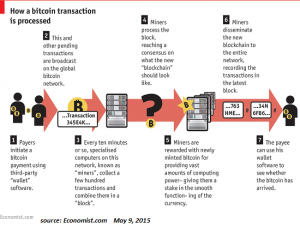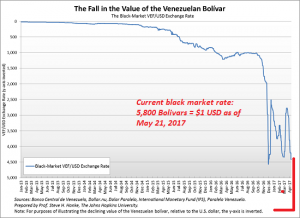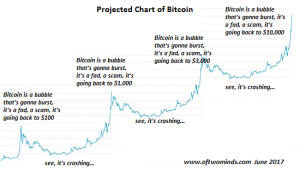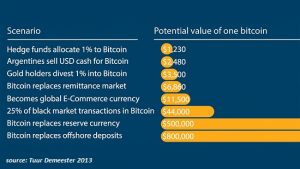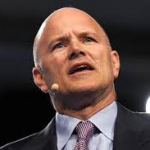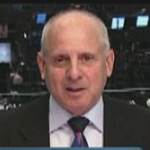
FRA: Hi, welcome to FRA’s Roundtable Insight .. Today we have Yra Harris. He is an independent floor trader, successful hedge fund manager, a global macro consultant trading foreign currencies, bonds, commodities and equities for over 40 years. He was also the CME director from 1997-2003.
Welcome Yra.
YRA HARRIS: Thank you Richard. It’s good to be back with you – It’s been a while.
FRA: Great. I thought today we would start off our discussion with Janet Yellen’s presentation and her statements – Your thoughts?
YRA HARRIS: Well, the conference went just as I thought it would be. Of course, as usual, she handled herself well. She discussed some certain issues, but didn’t give much away. And more importantly she didn’t trap her successor, Jay Powell, to any type of situation. She has been gracious and thoughtful and so she continued in that vein. She didn’t really tell us much. Again, she was struggling to understand the lack of inflation and that will continue to plague her because they just don’t truly understand where the inflation is as the Fed measures it. That’s all we have to go in is the way they measure it. How any of the rest of us measure it at this point in time really is meaningless because we’re not driving the markets in that regard.
FRA: Did she set any expectations for future interest rate hikes?
YRA HARRIS: I’m not sure, maybe a couple, she was kind of reticent. I heard one of the media economists talking about it today saying that Greenspan understood with the technological innovation, going back to 1996, that he thought it was going to have an impact on supply-enhanced growth period so he was reticent to raise interest rates and that was a good thing. But every Austrian economist I know worth their weight and those who are not in the Neo-Keynesian new model will tell you that that was exactly what caused all the problems, was that Greenspan was reticent to raise all the rates even though the return on capital was rising significantly. And that’s when you need to start raising rates because then you head off any type of excess capacity developments which of course we saw by 1997-1998, we had a massive overcapacity situation which started the Asian Contagion. She is kind of settled with this too because she talked about that with the tax cut and the fiscal policy today which was good, not in any type of derogatory way, but she is worried about maybe the increase in debt, but she’s hoping that if this tax cut is stimulative it will be supply-side leaning and we will get greater productivity growth which she said would be the good type of growth that she wants.
So we will see.
FRA: What about the U.S. yield curve? Do you see continued flattening of the yield curve or potential inversion going into next year?
YRA HARRIS: Well again, they tried to pin her on that new version. People have to be specific. I am using the 2-10 yield curve. When the 2-10 inverts, there is danger ahead for a lot of asset classes. People will say, “Well, not so fast”, but I will be the first one to tell you because I’ve looked at this for 35 years as part of my trading paradigm that I developed for myself and I can’t time it. I have a study here that was done in 2003, it is right here I keep it in my drawer and it’s exactly on this. It was done by an intern of mine who is very highly qualified and it was written in July of 2004 titled, An Investigation into the Relationship between Changes in Yield Curve and the Performance of Stock Indices. So we’ve looked at this. It is so difficult to time. I can’t tell you when the results going to be, but I’m going to tell you just like in 2007 when then yield curve inverted, it was only by 6 basis points, we know what followed. In 2000, the yield curve inverted, we know what happened then. In 1979-1981, of course that was a forced inversion by Volcker as he was ringing inflation out of the system, but we know what happened then. This time, I can’t tell you. We’ve discussed this, you and I, for quite a while. We’ve been right in many ways about it and I’ve warned with what the central banks are doing that this is a wild card. I can’t tell you what the impact is going to be. It was interesting when Yellen discussed the yield curve today. She didn’t talk about the effects from other central banks and I think that’s a huge part of the flattening that is going on.
FRA: Yes. And about that…Do you see the ECB, Bank of England and Bank of Japan having their yield curves affected?
YRA HARRIS: Well for the Bank of Japan, Kuroda tried to give us a different spin on it thinking that maybe they were going to put an end to it, but as soon as the dollar/Yen softened off of that, I forget what the exact phrase was, it was from a speech in Switzerland in mid-November where he used certain language that spooked the market, but then he walked it back of course. You see that the dollar/Yen got weak today and then dollar really fell off after the Fed’s action. Tomorrow (Thursday, December 14th, 2017) we have an ECB meeting, an SNB meeting, Bank of England meeting and the Bank of Mexico – They are all in play here. I think Kuroda’s term that he used in November was reversal rate. It was a new term. We hadn’t heard it and myself included. I thought maybe they are thinking about ways that they can finally start to get out of this, but then he walked that back. They’re not going anywhere. And as I was talking with Rick Santelli the other day, I wasn’t on T.V. with him, but I had a tea and he had a cup of coffee and we were just talking about that and it’s different, unlike the U.S., when the U.S. started down the path of tapering when Bernanke stopped being afraid of his own shadow and stopped being plagued by the Taper tantrum and they actually announced how they were going to do it, it was a monthly reduction in the amount of what they were going to purchase and they were going to end it over in less than a year. They went from $85 billion to zero, where they weren’t purchasing any new stuff, in a fairly quick period, but the market new what they were going to do. The ECB is totally different. We know that they are cutting from $60 billion to 30 billion starting January 1st, but they’re not reducing it after that. So Draghi is going to be buying $30 billion instead of 60 billion, but he has already told us he is extending it out to September. So we know we are going to get $270 billion new buying with whatever else they are buying in Europe all of next year. And the Bank of Japan does have some latitude there because of the yield curve control. There is not change coming. I think Draghi has a very grave problem on his hands. You saw it today where the Italian bonds actually got hit even with whatever they are buying because now we know there is going to be an Italian election on March 4th and this is going to be a very contentious election because right now the polls have the Lega Nord and Five Star Movement leading. So this market knows there is an election coming. But more importantly for Draghi is Merkel, And Richard you and I have talked about this before the election that she is not going to be as strong – And she’s not. She is very weakened right now and the German elites, the nomenclature or the thinkers, are so afraid of a new election, but meanwhile it is 3 months’ time from the election and no new governments have been formed yet. It’s a caretaker government. And Merkel offered, because she was pressured to do so, the SPD (Social Democratic Party of Germany), who swore that they weren’t going to go into coalition and now they’re negotiating for coalition, but she’s phenomenally weakened. This is a very important thing for Draghi because she has been his bodyguard. Whatever he wanted to do, Merkel was willing to deflect criticism. Now that she’s in such a weakened state with the Italian elections, he’s in no position to do anymore tightening or hawkish statements. I’m looking for tomorrow to be excessively dovish.
FRA: Any updates on the gold currency cross exchange rate you’ve written about recently that gold is being restrained from positive real yields?
YRA HARRIS: Right now, the 2 year yields dropped a little bit today, so we’ve about neutral right now using the 2 year on inflation. Real yields are probably about zero, but global real yields are exceedingly negative. That’s why I said gold will perform well against all currencies because global short-term real yields are very negative. In the U.S. they are neutral, but the interesting thing is the dollar is not getting a bit. This defies most things that anybody has looked at this and traded on it and analyzed it. The United States dollar should be screaming right now based on what we saw during the Reagan years because you’re getting a fiscal stimulus package via tax reform and rising interest rates. These are two variables that are very positive for currency and yet nothing. This is really starting to get interesting and forcing me to think because something is wrong here.
FRA: And today Yellen made some statements about Bitcoin, everybody is talking about Bitcoin. She mentions it is not legal tender – Your thoughts?
YRA HARRIS: Well it’s not legal tender, but it definitely should be legal tender. We have talked about Bitcoin before and again I’m far more interested and I’m on record for over a year saying that I’m more interested in the blockchain technology and the concept of it buying Bitcoin, to my own detriment, but I’m with guys like Druckenmiller – I can only trade what I understand. I went through the dot-com bubble and I couldn’t understand them. I didn’t understand when people were talking about burn rates of money and my common response was that I’m a child of middleclass parents – We don’t burn money…You’re going to have to help me better than this. So I’m watching it and it’s intriguing. I wonder whether it’s going to affect gold. Some people think it affects gold because it moves potential gold buyers into another alternative, but as I wrote last week, hell has frozen over when I find myself in agreement with Alan Greenspan. Greenspan just didn’t understand and you cannot create value out of nothing. I know tech people tell me that it’s not nothing and that there is a process here that we can probably find in David Ricardo’s labour theory of value. You have to mine it so there is some value, but I agree with Greenspan about that where you just cannot create value out of nothing although I would’ve asked him the question…Then that would make the Swiss Franc the oldest cryptocurrency in the world because it’s so secretive, so if that’s the definition of crypto is being secretive and basically finding it under the radar. They’ve been doing this for a long time and we’ve watched them for 3 years create value out of nothing by printing Swiss Francs so I’m voting the Swiss Franc as the cryptocurrency of the year. If you actually look at the SNB stock price, it almost mirrors that of Bitcoin – It’s such a dramatic rise this year.
FRA: Do you think that a government-based digital currency or cryptocurrency, if we can call it that, will allow private-based cryptocurrencies like Bitcoin and others to coexist?
YRA HARRIS: I really can’t answer that. Janet Yellen was very good in her answer when somebody asked her if the Feds are looking into it and she said, “Other central banks are. When we said we are looking at it, are people doing research? Yes. But we are looking at digitized money, not cryptocurrencies and there’s a big difference.” And she was very good at explaining that difference. I think that we are going to get digitized currencies…Why? Because people like Larry Summers, Kenneth Rogoff and others have wanted to get electronic money because then they would have greater control over what you and I do. So when you go to financial repression rather than us pulling our money out of the system and hoarding it, they would force us to use an electronic currency which they can control. Then they would hope they can restore velocity to the money which is why Larry Summers said to get rid of the $100 bill because it’s much harder to hoard currencies with smaller denominations because if you’re hiding them under your mattress, it doesn’t take that much money to give you sleepless nights. You can only hold so much currency in smaller denominations.
FRA: And to allow for easier implementation of negative interest rates through monetary policy.
YRA HARRIS: Yeah. Marvin Goodfriend, who has written very extensionally on negative interest rates, that’s right because that’s the whole thing. I’m going to go to negative interest rates and I’m going to force you to keep your money in the system rather than anyone with a brain says, “Negative interest rates? I’m going to pull my money out of the bank.” Because if you have negative interest rates for 10 years and we’re at -2%, I’m going to lose 20% of the value of my currency. Then people pull it out of the bank and do other things with it such as investing in gold and other things. It gets very interesting.
FRA: Exactly. And finally, I’m just wondering about your thoughts on the geopolitical scene in terms of Saudi Arabia and Russia with what’s happening in Saudi Arabia and any new developments on meetings and more discussions between Saudi Arabia and Russia.
YRA HARRIS: I have looked at this for quite a while and I stated the last time around that there was major event that took place on October 4th and that’s when the Saudi King, not the crowned prince, Mohammad Bin Salman, the king himself went to Russia for the first time ever. I’m always interested in the events that are first-time-evers because there is always a reason for it. Dixon going to China was amazing event. So the king went to Russia. On those two days he was there, oil traded down to about 49 dollars and then over the next 8 weeks it went all the way up to about 60 dollars. Is this happenstance? No, I don’t think so. I think that major shifts are taking place in the world. You’re seeing it in the mid-east, and Russia is very involved with this because the Obama administration leaped them into a bigger role in Syria which has now given them the primary role. So there are all types of things that are taking place. There are shifting sands, no pun intended, and we have to pay attention.
FRA: Great insight Yra as always. How can our listeners learn more about your work?
YRA HARRIS: You can go to YraGHarris.com and Notes from Underground, which is where I blog, will pop up. They can follow me and register to receive it for the very expensive price of free. And again I don’t talk trades to people, I try to explain to you where I think the next opportunities are going to be from a trader’s perspective because I always have to wear two hats: as a trader and as an investor. And they are radically different.
FRA: Great. Thank you very much Yra for being on the program show again. Thank you.
YRA HARRIS: Well Richard, at this time we’re in I hope I was able to “shed some light”.
Transcript written by: Daniel Valentin <daniel.valentin@ryerson.ca>




 12/15/2017 - The Roundtable Insight: Yra Harris Sees The Swiss Franc As The Oldest Cryptocurrency
12/15/2017 - The Roundtable Insight: Yra Harris Sees The Swiss Franc As The Oldest Cryptocurrency







